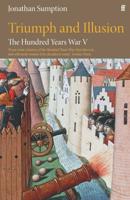Publisher's Synopsis
This study reconstructs the Italian protohistory of Odessa, founded in 1794 by the immigrants from Genoa and Naples, Venice and Palermo. Foreword; Dr. Anna Makolkin's monograph Odessa, the Last Italian Colony, is a carefully researched and accurate account of the foundation of the port city of Odessa(1794), and tells of the part, played by the Italian immigrants in this historical event which lead to the successful exploration of the Black Sea frontier - Novorossiia/New Russia. The materials about this obscure migration have been scattered in archives of Italy and Ukraine, and most 19th and 20th century historians, intimidated by radical nationalism, politics and geopolitics of Europe, and post-colonial trends did not have sufficient courage to address the topic. Italians were not just another wave of Odessa immigrants, not just another part of her multicultural mosaic, they were her founders and colonizers of the region. None of the so far available historiographical materials have ever suggested this, and it is the main accomplishment of Dr. Anna Makolkin and her timely, elaborate, well-researched and erudite monograph.;Unlike some recent historical essays about Odessa, her book goes beyond the account of the single city and temporary contributions of a single group. Her book fills the gap in the European historiography about the unknown, atypical and understimated Italian migration which was instrumental in Europeanizing rural and backward Russia, at the time of mass migration from Europe to North America. Reconstructing the early history of the port and reclaiming Odessa's Italianness, the author not simply restores the misrepresented past, but it places this little known 18th century Italian migration into the wide context of the general cultural role of Italians in Europe. The Odessa Italian colony adds to the other Italian European cultural contributions.. Telling the Italian Odessa story, the author deals with the phenomenon of European urbanism as a universal cultural sign, problems of transfer of Italian cultural traditions, their art, music, sculpture, painting, architecture and civic governance, next to banking, supervision of customs and foreign trade.;The urban and cultural history of Europe, both Western and Eastern, is inseparable from Italy and Italians, and this is the context into which Dr. Makolkin places her research. When histories to order and to please politicians are abundant in the present jingoistic climate, the author raises the question of ethics in history. She uses her academic freedom to deal with the taboo subjects of willful amnesia, doctored historical narrative and manipulation of collective memory. The book challenges the writers of ethnic histories and the very ethos of myopic nationalism, obsessed with tribal difference. The study of the port of Odessa, this New Russian Carthage, is presented in the context of Tyre and Carthage, Piraeus and Larnaca, Istanbul and Marseilles, Naples and Venice, Genoa and Lisbon, the Hanseatic League European ports. Port is viewed as a prototype of the modern multicultural society, friendly host of migrants and foreignness. Dealing with porto franco, Dr. Makolkin pays significant attention to its cultural implications, while most historians usually deal mainly with economics.;Italians who managed to recreate Genoa and Turin in Odessa had a "cultural European compass," which they left behind for this Russian, Soviet and later Ukrainian city. The minibiography of Giuseppe De Ribas, the first and most influential Governor of Odessa, included in the book, adds an important chapter to the military and diplomatic history of Europe during the period of the Russo-Turkish war, history of the Russian Court and Italo-Russian relations of the time. The Italian Biographical Dictionary so far has no entry for this influential Italian who served for twenty years in the Russian tzarist Army. Based on the new archival findings, it rewrites some aspects of the biography of Catherine the Great and Admiral Count Alexander Suvorow (1729-1800). This Italian colonization of Novorossiia coincided with the intense exploration of the American continent, and the author draws parallels between the quality of life and types of settlers on both continents, giving insightful analysis of different colonizing approaches. The Odessa Italians, unlike their North American brethren, were mainly urban, literate professionals who had the most profound civilizing impact in their new country.;The sociologists of immigration will greatly benefit from Dr.Makolkin's analysis. This remarkable book has the most balanced thematic range, dealing not only with Imperial foreign and domestic politics, urban, military affairs and diplomacy, professional performance of different Italians but having substantial well-researched chapters on Italian language, opera, music, religious life and architecture. Historians of music and theater will be interested in the Odessa's Italian operatic tradition, the legacy of Rossini and Cimarosa, performances of Tati and Brambilla, Fabbri and Guerini, Salvini and Duse, Ristori and Di Grasso and the lasting impact of Italian music on the cultural ethos of Odessa. The Italianness has forever shaped the Odesseans, imparting the aesthetic sensibility, the elegance, taste in music, attitude to life, their wit and specific speech. The book also provides an intriguing chapter on the Jesuits and Jews, exposing the complex problems of religious identity. Speaking about Italian architecture, the author presents the impact of the Church upon the secular society, the influence through structure.;Nearly every topic touched in the book is brought from the wider than usual perspective. The writer of this exciting monograph brings in her vast interdisciplinary knowledge from other humanities- history of art and architecture, music and linguistics, history of ideas, continental philosophy and semiotics. The outcome of a decade-long research in the archives of Genoa, Turin, Spezia and Odessa, the study has numerous archival discoveries, the most crucial of which are the Diaries of Consul Cozzio, the Correspondence between Catherine the Great and Stefano de Rivarola, reports of the Odessa Architects Frapolli, Digby, Boffo, the shipping manifestoes with the name Garibaldi and of thousands of Italians, leaving for Odessa. Garibaldi led the thousand volunteers who liberated Sicily from the Bourbon occupation, and then marched from the strait of Messina to Reggio Calabria and went on to bring the liberation and unification of Italy.;This passionate historical account, dedicated to Consul Cozzio and all forgotten Italians, is a story of the European West meeting the East on its own soil, transplanting the Italian civic and cultural traditions and building the mini multicultural state out of the old porto-franco. The story of the European port elucidates the history of Europe during the literary and ideological transition from Rationalism to Romanticism. Michael Ukas, Professor Emeritus June 18, 2004 Department of Italian Studies University of Toronto









